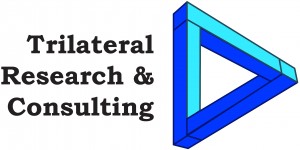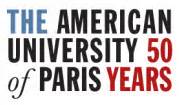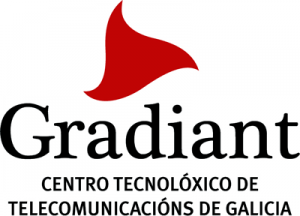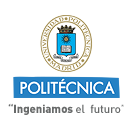
|
Trialog is a system and software engineering company in the fields of real-time and embedded systems that was incorporated in 1987. Trialog’s business focuses on transfer activities related to innovation undertakings, by industry stakeholders in transport, energy, M2M and home connectivity. Over a time span of 25 years, Trialog has applied this in the area of deeply embedded networks and platforms. Trialog currently focuses on the following: security and data protection for embedded systems, engineering, and model based engineering interoperability.
Project Coordinator:
TRIALOG
|

|
Atos is an international information technology services company with annual 2010 pro forma revenues of EUR 8.6 billion and 74,000 employees in 42 countries at the end of September 2011. Serving a global client base, it delivers hi-tech transactional services, consulting and technology services, systems integration and managed services. With its deep technology expertise and industry knowledge, it works with clients across the following market sectors: manufacturing, retail, services; public, health & transport; financial services; telecoms, media & technology; energy & utilities.
Atos
|

|
Trilateral Research & Consulting is a London-based Limited Liability Partnership, created in October 2004. It specialises in research and the provision of strategic, policy and regulatory advice on new technologies, privacy, risk, surveillance and security issues. Since its creation in 2004, Trilateral has participated as a partner or as a co-ordinator in many European and UK projects. It has organised consortia with representatives from industry, universities, government agencies, research institutes and civil society organisations.
Trilateral Research & Consulting
|

|
Inria, the French national institute for research in computer science and control, operating under the dual authority of the Ministry of Research and the Ministry of Industry, is dedicated to fundamental and applied research in information and communication science and technology (ICST). The Institute also plays a major role in technology transfer by fostering training through research, diffusion of scientific and technical information, development, as well as providing expert advice and participating in international programs.
INRIA: Institut National de Recherche en Informatique et en Automatique
|

|
Founded in 1962, The American University of Paris (AUP) is one of the oldest American institutions of higher learning in Europe and is accredited in the United States by the Commission on Higher Education of the Middle States Association of Colleges and Schools. AUP offers 6 graduate programs, 12 majors, and 32 minors and its 1000 students represent over 100 nationalities. The recently created Working Group on Human Rights and Digital Technology is particularly focused on the interstice between human rights protection and civil society development, on the one hand, and technology regulation, on the other.
The American University of Paris
|

|
Gradiant is a private non-profit RTD centre based in Vigo, Spain. Gradiant’s focus is on applied ICT research and technology transfer to industry and society. GRAD operates since 2008 and staffs ca. 60 researchers as of Q4 2012. Gradiant’s ICT research and innovation activity spreads over Communications, Networks and Services, and Multimodal Information, with applications in a number of fields including security and privacy.
Fundacion Centro Tecnoloxico de Telecomunicacions de Galicia – Gradiant
|

|
The Universidad Politécnica de Madrid (UPM) is the largest Technical University in Spain devoted to technical and engineering studies, having about 40,000 students, 3,300 teaching and research staff and 1,900 administrative and technical staff. The UPM plays an important role in European research and academic activities. UPM participates in the project through the Telematics Systems Engineering Department (DIT). The Department is the largest university research group on Telematics existing in Spain. In addition to this research activity, other representation and organisational activities are carried out by members of the Department like membership of international consortia and working groups, programme committees in major congresses or conferences, organisation of international events, deputies from Spanish research agencies in national and international research programmes.
Universidad Politécnica de Madrid
|
|
|
University of Ulm was founded as a university of medicine, mathematics, natural and technical sciences in 1967. There are currently around 9.000 students at the University, spread out over four faculties. The institute’s research focuses on a broad range of topics from Distributed Systems, including Cloud Computing, Middleware, Cooperative ITS incl. electric vehicles and smart grid integration, and Security and Privacy.Members of the Distributed Systems research group have a long record of research related to communication, security, and privacy in dynamic mobile communication systems like MANETs or V2X networks. Active participation in EU FP6 and FP7 projects SeVeCom and PRECIOSA and the coordinator role in the FP7 PRESERVE project is complemented by research on information dissemination in vehicular networks, securing VANET communication, data consistency checking, and privacy protection through policy enforcement.
Universitaet Ulm
|
|
|
The Fraunhofer-Gesellschaft zur Förderung der angewandten Forschung e.V. (Fraunhofer) is an autonomous research organization with a decentralised organisational structure, which currently maintains 56 research institutes in locations throughout Germany. Whilst the administrative headquarters are in Munich, the legally non-independent research institutes operate from different locations in 15 of the German states. A staff of approximately 12,500 works with an annual research budget of about 1,2 billion Euro. Commissioned by customers in industry, Fraunhofer scientists provide rapid, economical and immediately applicable solutions. Work focuses on specific tasks across a wide spectrum of research fields including communications, energy, microelectronics, manufacturing, transport and the environment.
Fraunhofer Gesellschaft zur Foerderung der Angewandten Forschung E.V
|

|
Waterford Institute of Technology (WIT) is a university-level institution in the South-East of Ireland with over 10,000 students and 1,000 staff. WIT’s Department of Computing, Mathematics & Physics (CMP) has approximately 70 academic staff and offers several degrees in computer science, including a 4-year BSc in Computer Forensics & Security. Several of the WIT CMP staff (including those participating on PRIPARE) are also affiliated with the Telecommunications Software & Systems Group (TSSG), an internationally recognised centre of excellence for ICT research and innovation at the Waterford Institute of Technology with over 140 employees. The TSSG carry out a wide spectrum of industry-informed research in Information and Communications Technologies (ICT), particularly technologies enabling communications and information services. TSSG’s key technical research areas are: mobile platforms and services, trust, security, privacy and identity, data analytics and social computing and adaptive networks and services.
Waterford Institute of Technology
|

|
The Interdisciplinary Centre for Law & ICT is a research Centre at the Faculty of Law of K.U.Leuven dedicated to advance and promote legal knowledge about the information society through research and teaching of the highest quality. ICRI is also among the founding members of The LEUVEN Center on Information and Communication Technology (LICT) and iMinds. ICRI is committed to contribute to a better and more efficient regulatory and policy framework for information & communication technologies (ICTs). Its research is focused on the design of innovative legal engineering techniques and is characterised by its intra- and interdisciplinary approach, constantly aspiring cross-fertilisation between legal, technical, economic and socio-cultural perspectives.
Katholieke Universiteit Leuven
|

This page is unfortunately closed.

